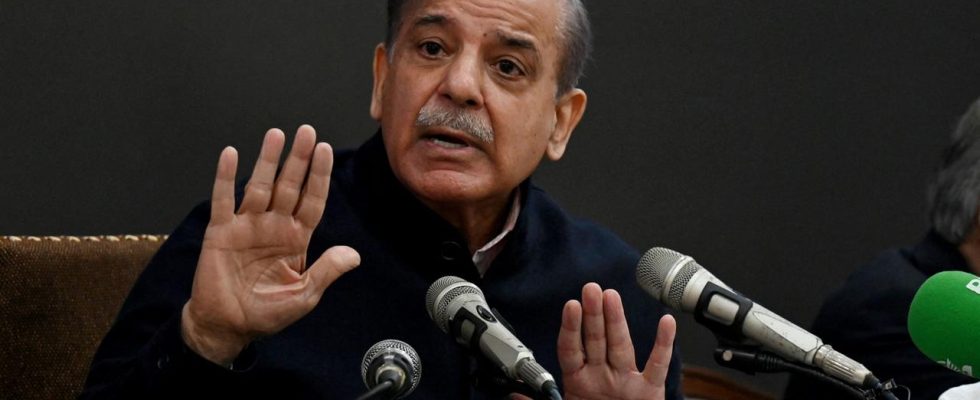In Pakistan, Shehbaz Sharif, a representative of a political dynasty, is once again taking over the leadership of the state. The decision in favor of the 72-year-old is another surprise after the controversial parliamentary election three weeks ago.
Pakistan’s parliament has elected former Prime Minister Shehbaz Sharif as the new head of government. “Shehbaz Sharif is the declared Prime Minister of Pakistan,” the Speaker of the National Assembly said on television. Sharif defeated his rival Omar Ayoub Khan, who was supported by imprisoned former Prime Minister Imran Khan and his opposition party PTI, with 201 votes to 92.
Sharif’s party, the Muslim League PML-N, leads a coalition with the People’s Party PPP around former Foreign Minister Bilawal Bhutto Zardari and several small parties. The assumption of office by the 72-year-old, who had already held the office between April 2022 and August 2023, represents another surprise since the parliamentary elections on February 8th in the country.
Political dynasties alternate
In the vote, which was overshadowed by allegations of manipulation and internet blocks, his older brother Nawaz Sharif was the top candidate for the Muslim League PML-N. However, he rejected the office after the PML-N failed to gain a majority in the parliamentary elections and cannot govern without a coalition partner. With the younger Sharif brother taking office, a representative of Pakistan’s political dynasties will once again be at the helm of the nuclear power.
In the almost 77-year history of the South Asian country, the two families of the Sharifs and the Bhuttos have mostly taken turns from the PPP – unless they were removed from power by the military. An exception is former Prime Minister Khan, who was dismissed from office early in April 2022. His opposition party PTI was not allowed to run in the recent parliamentary elections. However, independent candidates, mostly with ties to the PTI, surprisingly became the strongest force and presented Pakistan with a difficult task of forming a government.
Heaviness Economic crisis
Various challenges await the future head of government: Pakistan is suffering from terrorist attacks and increasingly from the consequences of climate change. The country is also in a severe economic crisis, with inflation at almost 30 percent.
Above all, Sharif must overcome a deep divide between politicians and voters in the country of more than 240 million people. PTI supporters again took to the streets in several major cities across the country to demonstrate against the parliamentary election results.
Supporters of Imran Khan on Saturday in Karachi.
power of the military
How long Sharif remains at the head of state in the coming years will likely depend on his relationship with the country’s powerful generals. So far, no prime minister in Pakistan’s history has been able to complete his term in office.
The military is considered crucial for the fall and rise of politicians. A close confidant of Sharif believes that his older brother will exert significant influence in the background anyway. “Nawaz Sharif is the one who will be in charge.”
Charlotte Horn, ARD New Delhi, tagesschau, March 3, 2024 1:23 p.m

